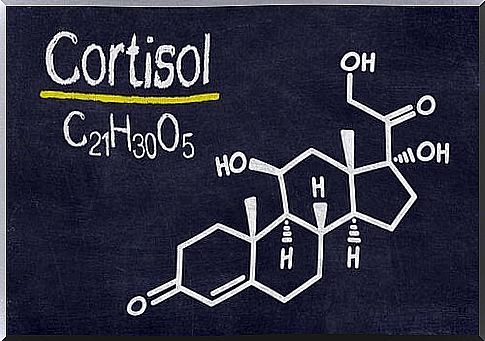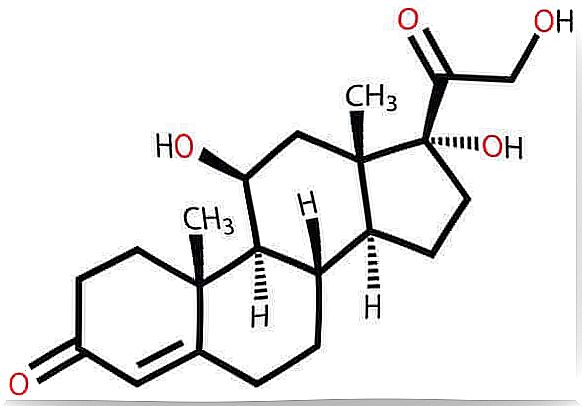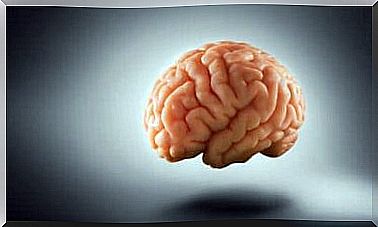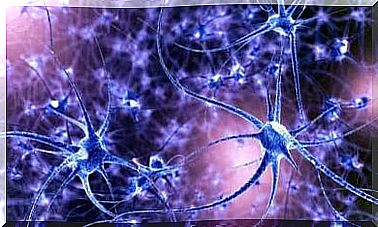Cortisol, The Stress Hormone

Cortisol is a hormone that acts as a neurotransmitter in the brain. It is considered the stress hormone by the scientific community, and our body produces it in tense situations to help us deal with them. The release of this hormone is controlled by the hypothalamus in response to stressful situations and low levels of glucocorticoids in the blood.
Stress is an emotion that generates physical tension. It can come from any situation or thought that makes us feel frustrated, angry or nervous. In fact, in small doses, stress can be positive, as when it helps us avoid danger. However, when stress goes from being a temporary emotion to a recurring emotion, it can harm our health.
Through our way of thinking, believing and feeling, we can change the state of our cortisol levels. Furthermore, scientific evidence shows that by modifying our thoughts in a certain way, we change the biochemical activity of our brain cells.
A lack of sense of humor, being constantly irritated, and being angry often, are possible indicators of elevated levels of cortisol. Others are permanent fatigue for no apparent reason, and either a loss of appetite or overeating.

Cortisol, the stress and insomnia hormone
Situations we interpret as stressful increase our cortisol levels, which can impair the quality and duration of our sleep. But cortisol, despite how negative it may sound, should be present at certain levels during the day to keep us awake and active, while these levels go down at night.
Our cortisol levels also vary throughout the day. For example, some people are more active in the morning, and others do not start the day before eating. It is normal that it gradually goes down as the day goes on, and it reaches its lowest levels when it is time to fall asleep. However, if our cortisol levels are not reduced at night, because our stress response remains active, we will have trouble falling asleep.
Cortisol plays an important role in our health and well-being, as levels increase with all the problems we identify as a threat. When our cortisol levels are good, we feel mentally strong, clear and motivated. But if they are low, we tend to feel confused, apathetic and exhausted.

Controlling our stress is very important, but often it is a difficult task. In a healthy body, the stress response takes place, and then the body lets the relaxation response take over. On the one hand, if our response to stress is activated too often, it is more difficult to turn it off and therefore it is more likely that one will experience an imbalance. On the other hand, when stress persists and the desired relaxation does not come, we become ill.
Stress makes us sick
Stress is the way your body tries to solve a problem, but when the situation is recurring, it can cause diseases such as diabetes, depression, insulin resistance, hypertension and other autoimmune diseases. The body’s response to stress has a protective and adaptive nature. That said, the response to chronic stress provides a biochemical imbalance that actually weakens our immune system.
Research has shown that recurrent or very intense stress is a factor that contributes to the development of somatization. It is a consequence of poor adaptation to change. There are many psychosomatic diseases that are created, triggered or aggravated by stress.

When acute stress is continuous, ulcers can form in different parts of the digestive system, as well as cardiovascular problems. In fact, in people with high risk factors, it can cause a heart attack. In addition, these diseases tend to move quietly, causing somatization in different ways and in different areas of the body, depending on the characteristics of the affected person.
Social support reduces our cortisol levels
Social support and oxytocin interact in our body to suppress the subjective responses that psychosocial stress produces. Thus, support from family and friends is one of the most powerful ways to protect yourself from stress-related illnesses, such as those mentioned above.
In fact, biological psychological research at the University of Freiburg in Germany, led by Markus Heinrichs, showed for the first time that in humans, the hormone oxytocin has a central role in both stress control and a stress-reducing effect. Oxytocin also plays a significant role in our social behavior (stress modulator factor).

Although it is difficult to control our blood cortisol levels, there are certain factors that are easier to control directly. We’re talking about having a good social support network (people you feel you can trust and they can really trust you) or reducing the consumption of certain substances, such as alcohol or tobacco, which indirectly increases your cortisol levels.
A healthy, balanced diet also helps regulate the levels of this hormone, because a reduced calorie intake can increase cortisol levels. In addition, a study from Ohio State University concluded that adding relaxation and meditation exercises to our routine reduces the risk of chronic stress.
According to this study, the difference between those who meditate and those who do not is that if a thought arises in a “meditative mind”, the thought is a witness. Otherwise, the tank is the boss.
Bibliography
Aguilar Cordero, MJ, Sánchez López, AM, Mur Villar, N., García García, I., López, R., Ortegón Piñero, A., & Cortés Castell, E. (2014). Salivary cortisol as an indicator of physiological stress in children and adults: systematic review. Hospital Nutrition , 29 (5), 960-968.
De La Banda, GG, Ángeles Martínez-Abascal, M., Riesco, M., & Pérez, G. (2004). The cortisol response is an exam and its relationship with other stressful experiences and with some characteristic of personality. Psicothema , 16 (2), 294-298.
Dickerson, SS, and Kemeny, ME (2004). Aggressive stress factors and cortisol responses: a theoretical integration and the synthesis of laboratory research. Psychological Bulletin , 130 (3), 355.
Heinrichs, M., Baumgartner, T., Kirschbaum, C., and Ehlert, U. (2003). Biological Psychiatry , 54 (12), 1389-1398.
Romero, CEC Estrés y cortisol.
S Moscoso, M. (2009). From the mind to the cell: Impact of stress in psychoneuroinmunoendocrinology. Liberabit , 15 (2), 143-152.
Valdés, M., & De Flores, T. (1985). Psychobiology of stress. Barcelona: Martínez Roca .








